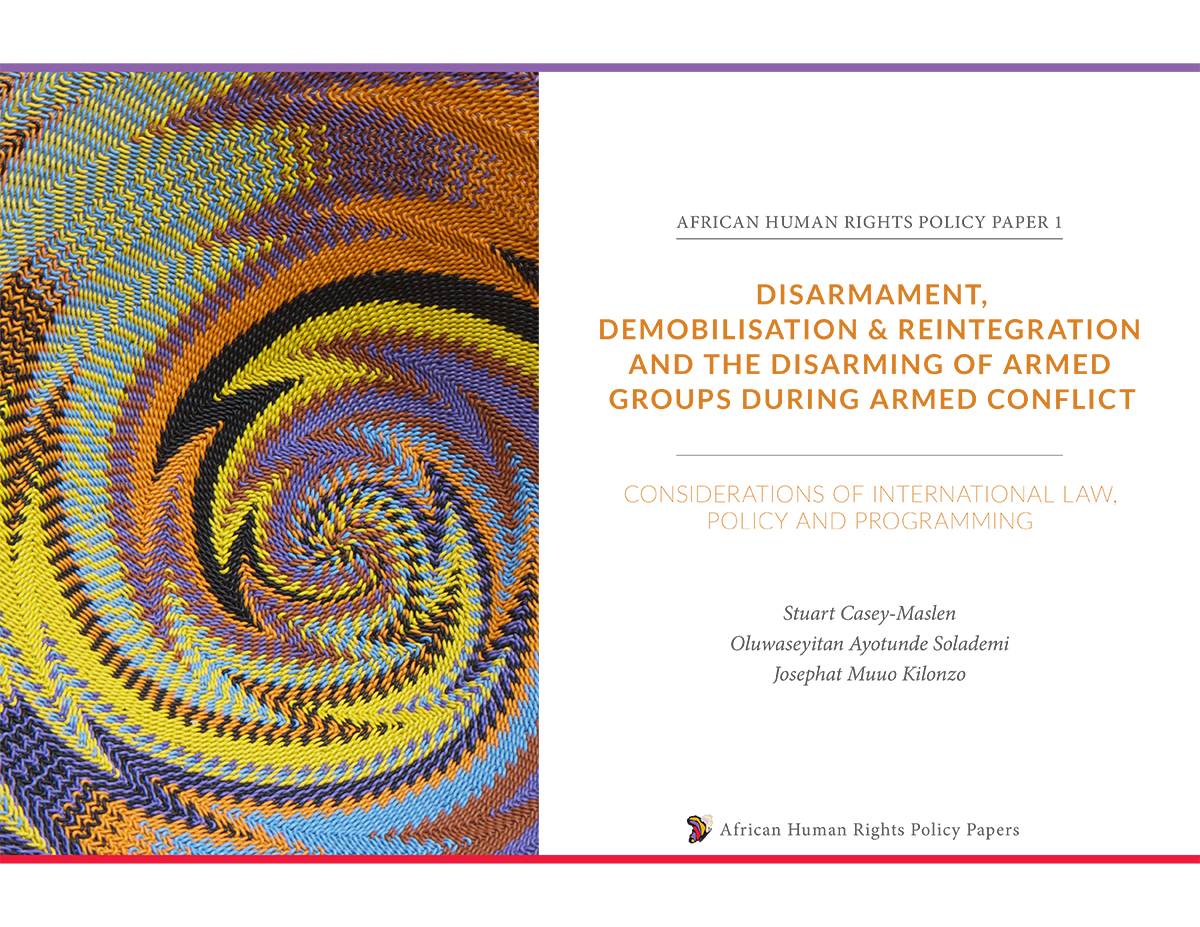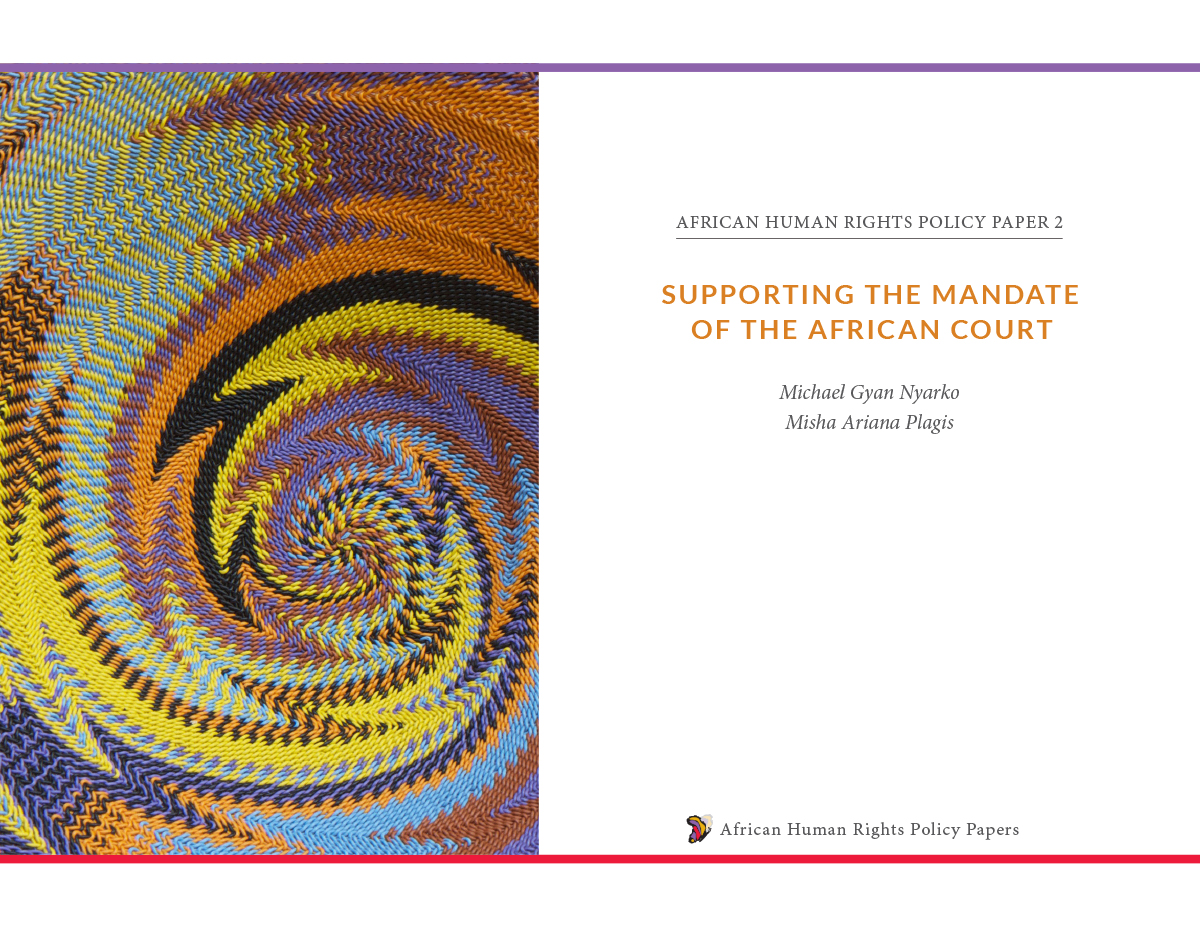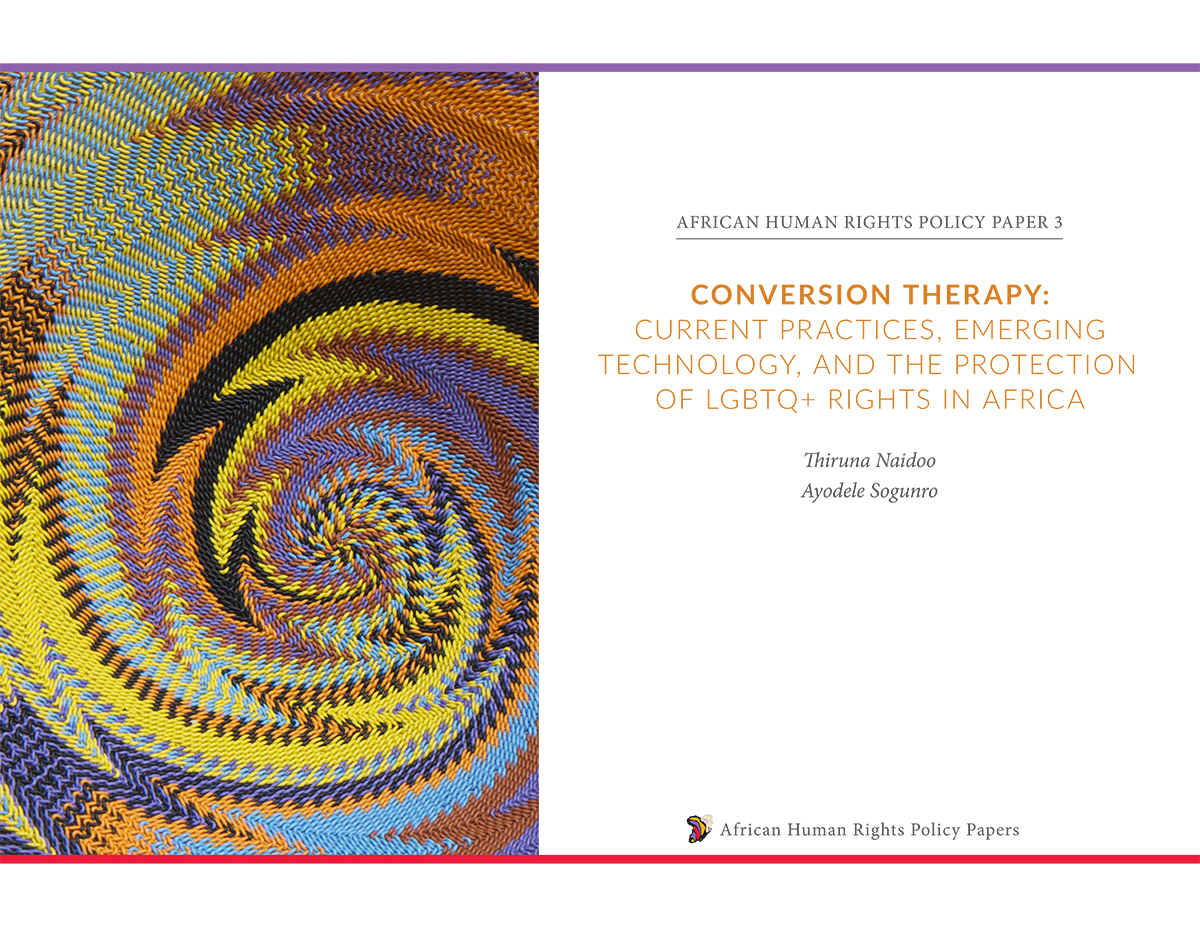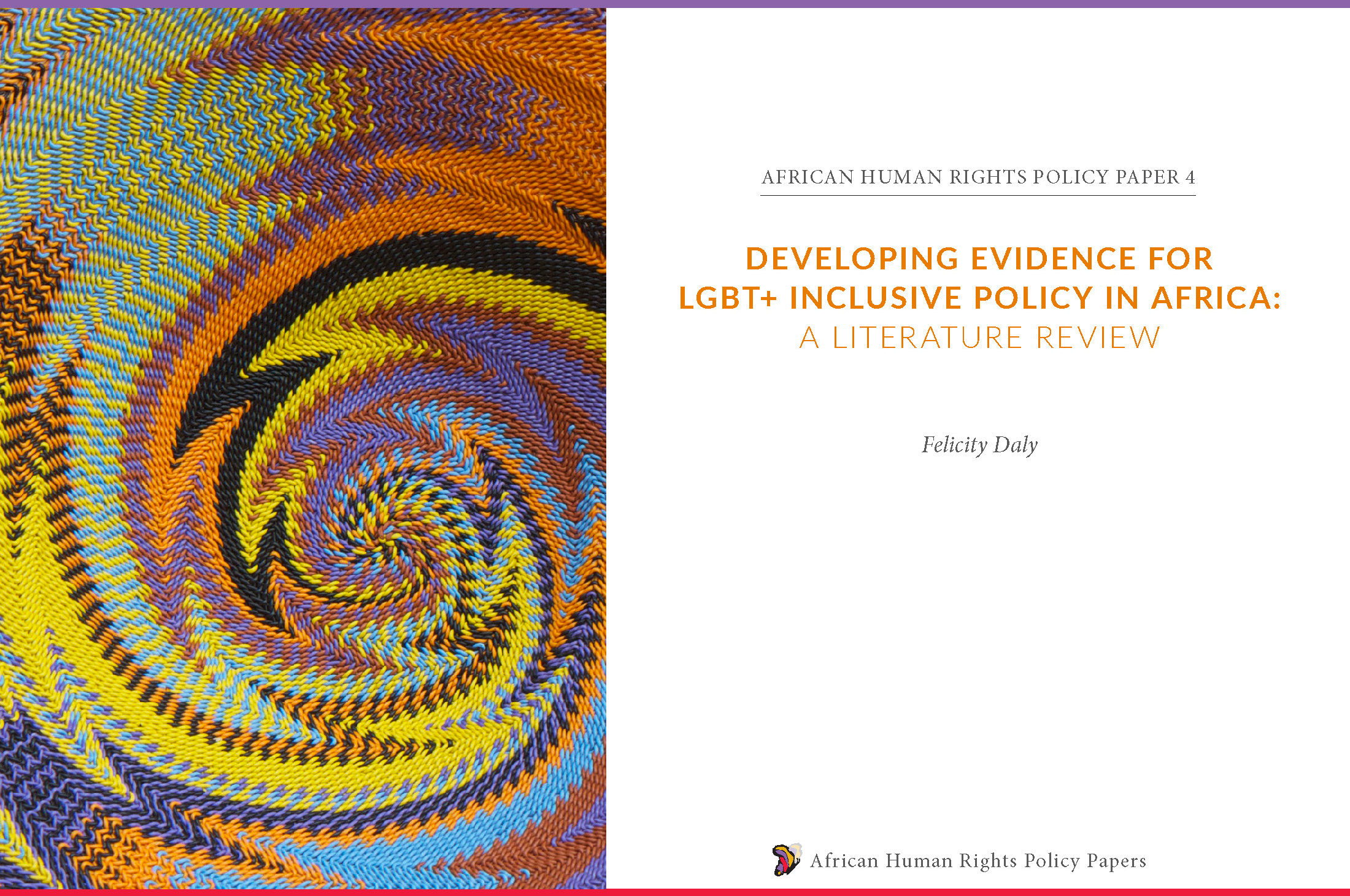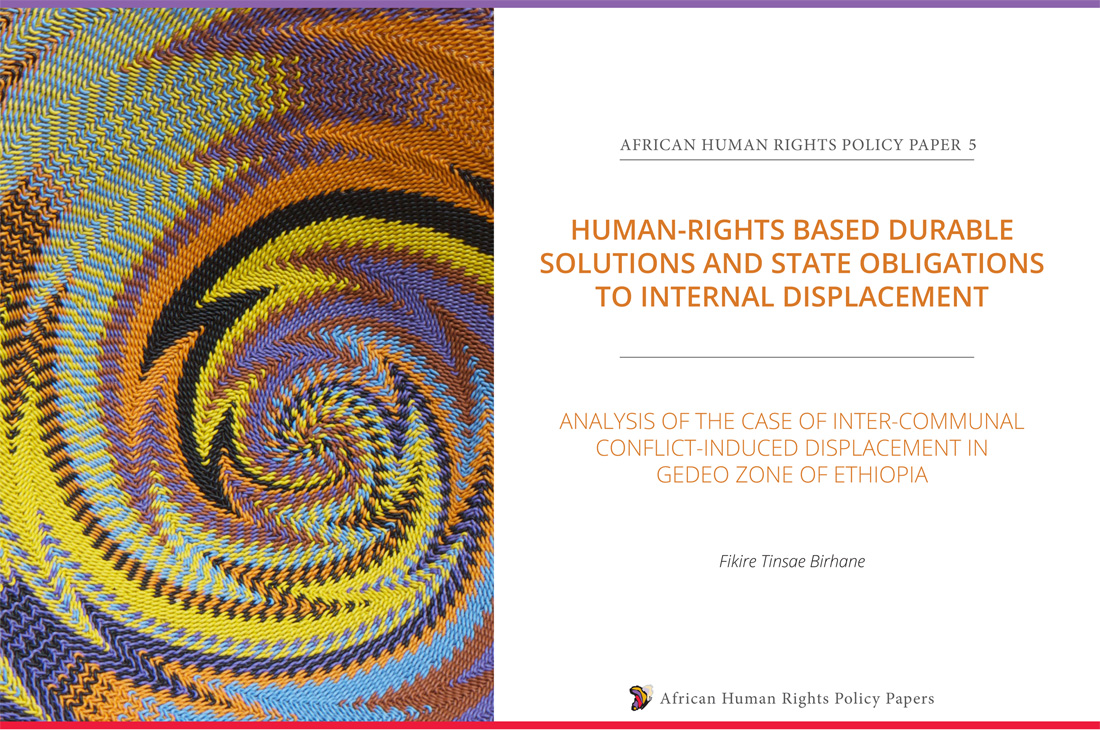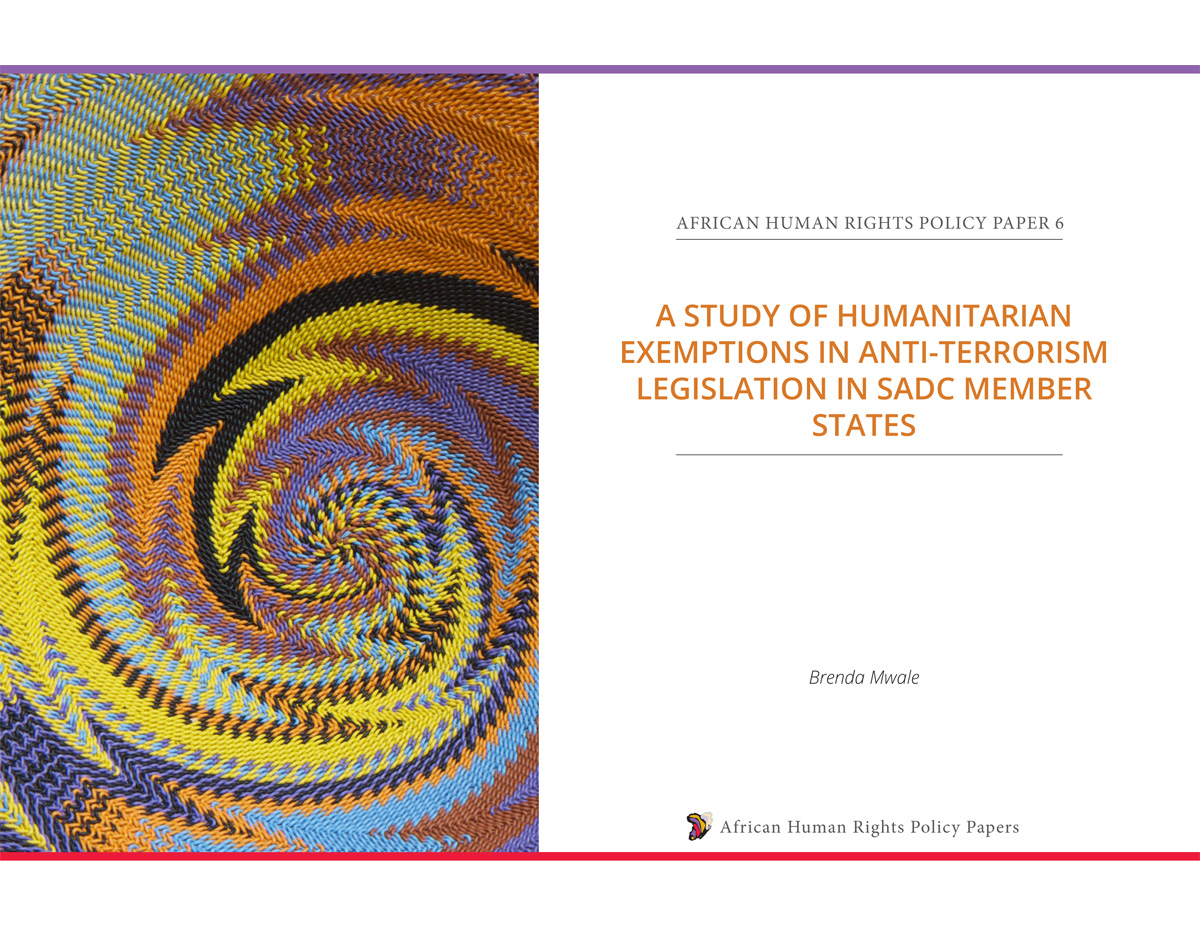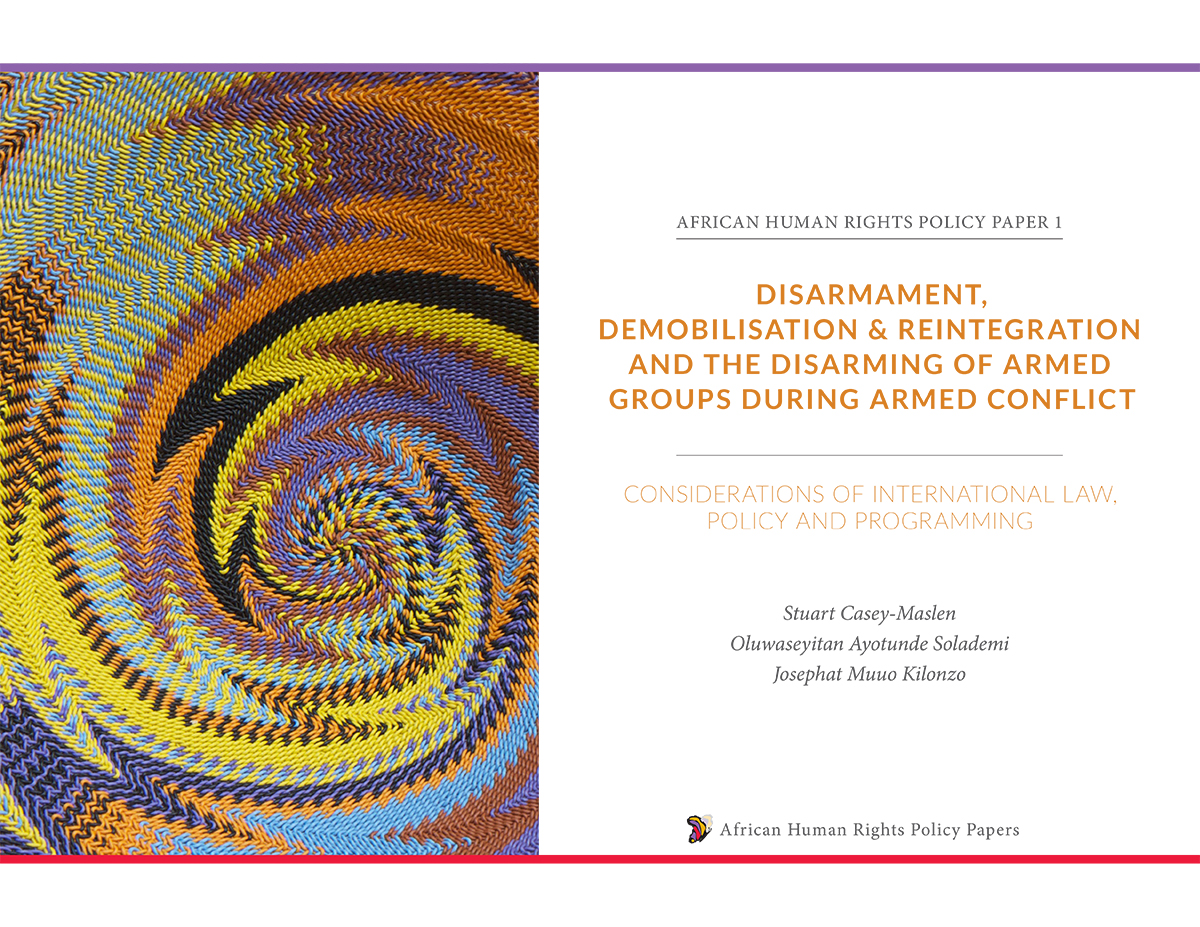The African Human Rights Policy Papers is a series of concise, thoughtful and accessible papers published by the Centre for Human Rights at the Faculty of Law, University of Pretoria. The series runs from 2020. These papers set out key findings on contemporary topics related to human rights, good governance, social justice and democratisation in Africa. In some cases, the topics may extend to the broader range of issues related to the rule of law and international law. The primary aim of the papers is to provide policy guidance to relevant stakeholders and decision-makers. Ancillary aims include: supporting advocacy campaigns, spreading knowledge, and sparking public debate on selected issues.
This African Human Rights Policy Papers series is one of the means by which the research and advocacy Units of the Centre for Human Rights, together with the self-standing Institute for International and Comparative Law in Africa (ICLA) and the International Development Law Unit (IDLU), aim to disseminate their research findings in accessible language, targeting specific audiences.
African Human Rights Policy Paper 1
Disarmament, demobilisation & reintegration and the disarming of armed groups during armed conflict: Considerations of international law, policy and programming
This is the first of the series: Disarmament, demobilisation & reintegration and the disarming of armed groups during armed conflict: Considerations of international law, policy and programming by Stuart Casey-Maslen, Oluwaseyitan Ayotunde Solademi and Josephat Muuo Kilonzo. A longer version of this paper was prepared for the International Committee of the Red Cross (ICRC) in 2019.
African Human Rights Policy Paper 2
Supporting the mandate of the African Court
This policy paper is the outcome of a high-level round table held on 3 July 2020, co-organised by the Centre for Human Rights, University of Pretoria, and the Asser Institute. During the virtual roundtable, 20 experts on the African Court were consulted for their views on the current challenges facing the African Court in terms of its mandate, as well as potential solutions to these issues. Following the Chatham House Rule, the results are discussed; however, the views expressed here are not attributed to any particular participant or organisation.
by Michael Gyan Nyarko Misha Ariana Plagis
African Human Rights Policy Paper 3
Conversion therapy: Current practices, emerging technology, and the protection of LGBTQ+ rights in Africa
This is the third of the series: Conversion therapy: Current practices, emerging technology, and the protection of LGBTQ+ rights in Africa, by Thiruna Naidoo and Ayodele Sogunro. This policy paper is adapted from a report prepared by the SOGIESC Unit. In addition to the authors, the original report was compiled with the research assistance of Sohela Surajpal, Sylvester Kazibwe, Micaela Carina, Khalif Cideka, Bianca Dyers and the editorial input of Professor Frans Viljoen.
African Human Rights Policy Paper 4
Developing evidence for LGBT+ inclusive policy in Africa: A literature review
The Centre for Human Rights, University of Pretoria is pleased to announce the publication of the fourth paper in the African Human Rights Policy Papers series. This is the fourth Policy Paper: Developing evidence for LGBT+ inclusive policy in Africa: A literature review by Felicity Daly.
African Human Rights Policy Paper 5
Human-rights based durable solutions and state obligations to internal displacement: Analysis of the case of inter-communal conflict-induced displacement in Gedeo Zone of Ethiopia
Addressing the challenge of achieving durable solutions for protracted displacement in Africa requires prioritising human rights-based approaches that are tailored to the unique circumstances of the continent. Therefore, fostering discussions on human rights-based durable solutions by critically assessing existing practices regarding the rights of forcibly displaced persons and proposing effective pathways towards lasting solutions is crucial.
African Human Rights Policy Paper 6
A Study of Humanitarian Exemptions in Anti-Terrorism Legislation in SADC Member States
Over the past decade, many States in the Southern African Development Community (SADC) have introduced or amended existing anti-terrorism legislation and policies to prevent, deter, and punish acts of terrorism within their jurisdictions. In many cases, these laws contain broad definitions of ‘acts of terrorism’ and proscribe different terrorist-related offences, including any form of ‘support to’ terrorists or terrorist organizations. While there is a legitimate aim in preventing and punishing these acts, humanitarian and human rights actors are concerned that these broad provisions can adversely affect principled humanitarian activities. These concerns are especially pronounced in situations of armed conflict where humanitarian actors work to protect and assist victims of armed violence in areas that terrorist groups may control.
African Human Rights Policy Paper 7
Complementarity of Law and Politics in the quest for a lasting answer to refugeehood: An African Perspective
Refugees continue to live in extremely worrying conditions all over Africa. There are now an estimated 40.4 million forcibly displaced Africans (internally displaced persons, refugees, and asylum seekers), more than double the figure in 2016 and 25% of this staggering number are refugees or asylum seekers residing outside their countries of origin. While the majority of refugees in Africa are hosted in the East and Horn of Africa, the suffering of those who have been forcibly displaced has not spared any country on the continent. Statesmen, individuals, private entities, and non-governmental institutions have been caught in the refugee quandary of the 21st century. Perhaps the greatest concern in the refugee fix of Africa and the world alike has been the management and protection of refugees.

